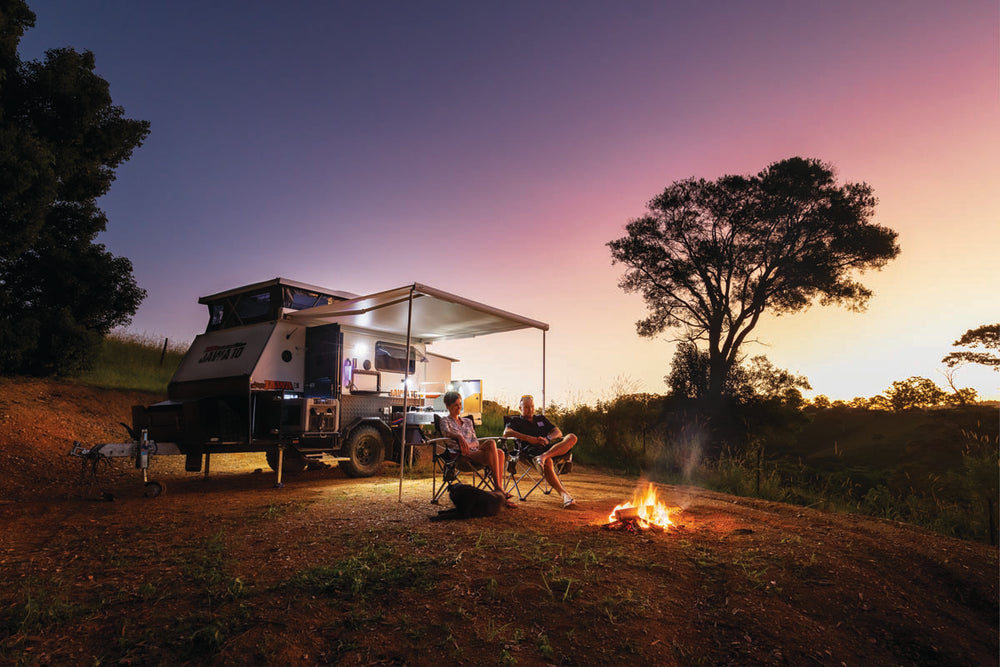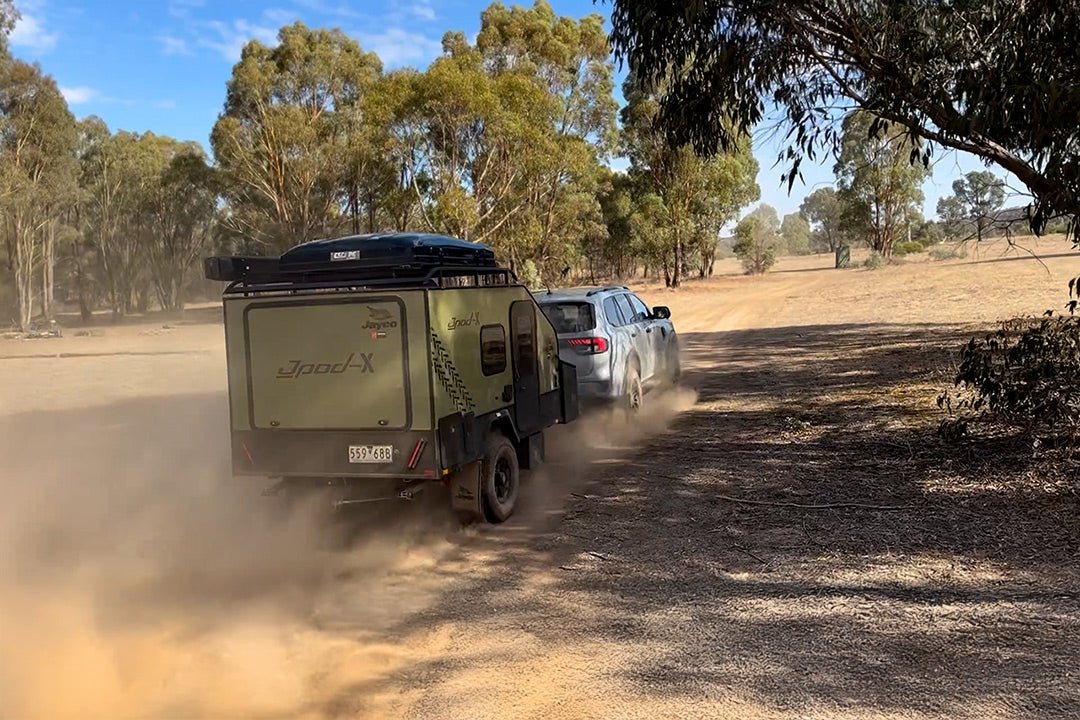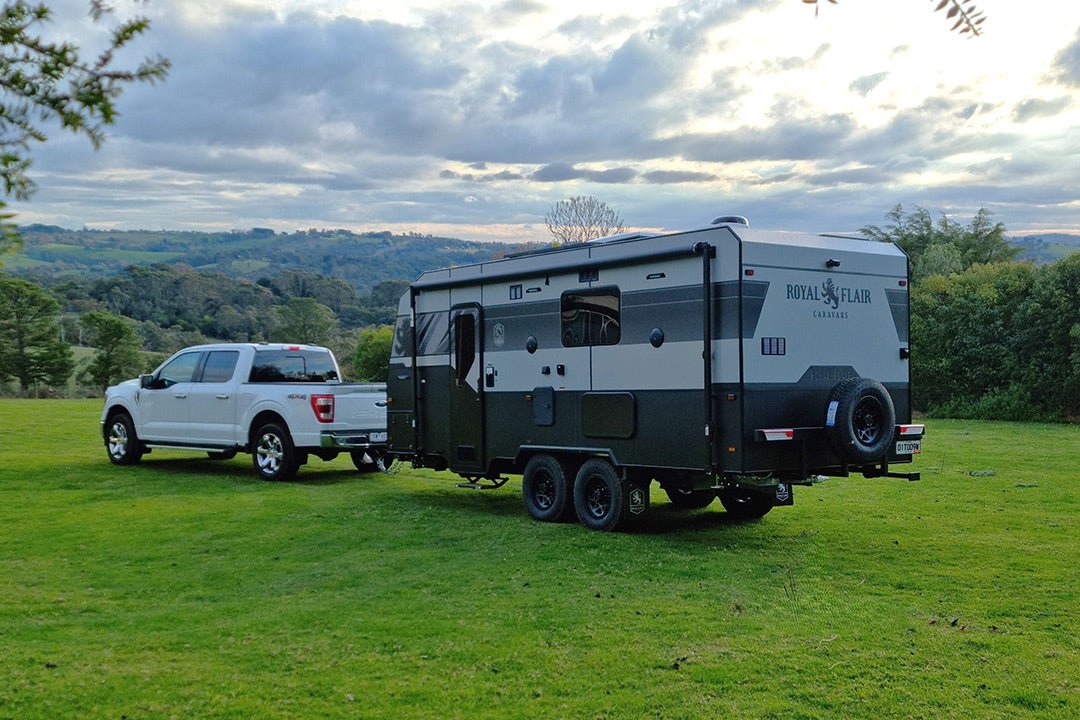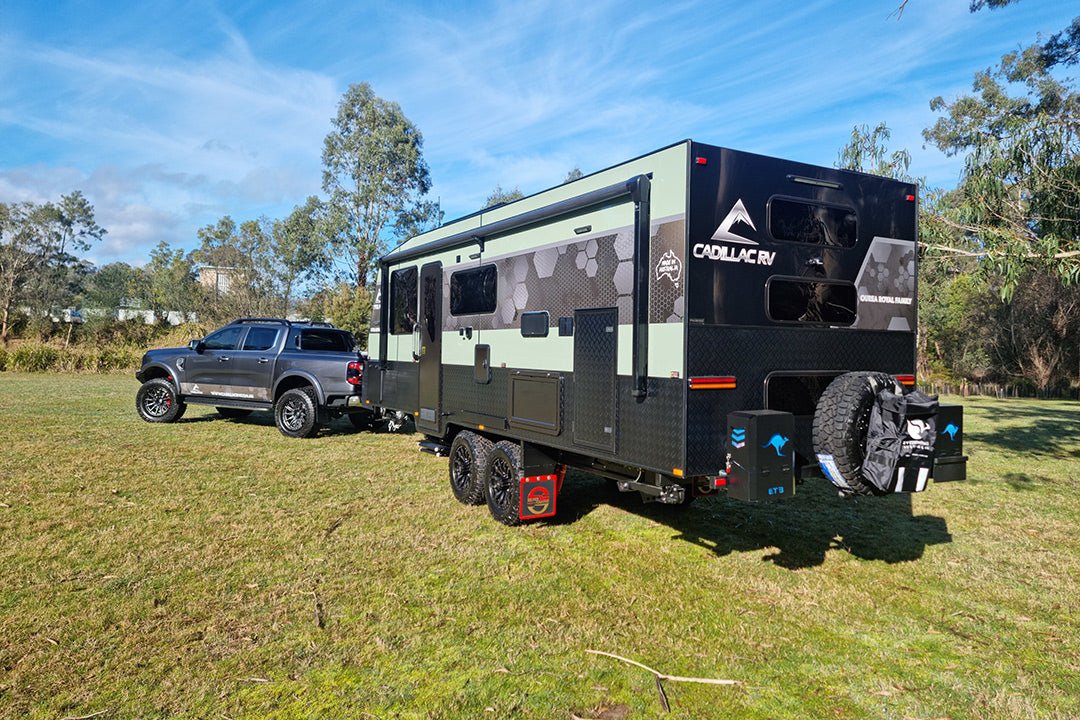Returning to the south-west of WA

“Where do you call home?” This question is often asked upon meeting someone for the first time. For myself, this seems to be obvious answer: I’m from Perth. You know, that relatively small, clean, beachside town of nearly two million people that was bestowed the tagline, 'The most isolated city in the world' many years ago with both a mixture of pride and indignation (in fact, it's not entirely correct — sorry guys).
I was actually born in the south-west region of Western Australia, in a small town called Busselton (well, it used to be small). You may know it? It’s famed for having the longest jetty in the southern hemisphere and some of the most exquisite blue beaches that deceitfully draw you into their glistening fold, to then release their army of little ‘stingers’ — full body, combat-style — on to unsuspecting flailing limbs.
My favourite memory of the south-west as a child, was not just going to the drive-in to watch E.T. on a hot summer’s night in Busselton, but that Dad had rented a caravan that we had plonked on the beach in Dunsborough that summer. I have photos of me wearing an E.T. T-shirt, ‘crumb sausage’ in the sand, out the front of a Millard.
I was blissfully unaware that I would be searching for home and where I called home, for the next 35 years. Because it seemed to me that you could rest your head anywhere you wanted to, while at the same time undertaking new and exciting adventures along the way.
HISTORY HAS A HEARTBEAT
Fast forward to the year of 2005 when, after travelling to remote regions of WA as a journalist and having lived and worked on boats both in Australia and overseas, I decided to come home and revisit some of the old haunts along that coastline that had housed a caravan and an old Brady Bunch tent many years previously.
I had learned that my great grandfather was the first person to bring the horse-drawn cart, and then stage coaches, to the south-west region of Western Australia (following with the first General Motors-Holden dealership), so I thought the best place to map out our journey would be where it all began.
YALLINGUP
Sometimes called ‘A large hole in the ground', as well as the ‘Place of Love’, Yallingup lies 34km west of Busselton. It’s known for its incredible beaches, surf and the Ngilgi Cave (named after a good spirit who triumphed in battle against an evil spirit called Wolgine, in Wardandi language). This is Noongar boodja country and the caves are of great cultural significance.
The caves brought tourists from near and far in the late 1800s and, subsequently, a hotel was built next to it (Caves House), to accommodate those who wished to stay for a meal and a drink at the bar. It was here that ‘P.S. Bignell’s Cave Coaches’ began to pick tourists up from around the south-west and drop them off at Caves House — the ‘Sunday session’ at Caves then became synonymous with the tradition of dancing to live music and drinking beers on a long hot summer’s day.
As a kid, we used to roll down the expanse of lush green gardens that surrounded Caves House while the adults got ‘pished’ until the wee hours. If you’re planning on staying a while, why not camp out at the Caves Caravan Park across the road, so you can get home safely. Or if you want to splash out and stay in one of the supposedly ‘haunted’ rooms at Caves House, you’re in for a treat (or trick).
Things to do:
Cape to Cape track: Australia’s longest coastal walk runs 135km along the Leeuwin-Naturaliste Ridge, between the lighthouses of Cape Naturaliste and Cape Leeuwin.
Canal Rocks: Along the Cape to Cape walk, this stretch of granite coastline has opened up a channel where you can cross a timber walkway between the rocks and watch the rushing water below.
Ngilgi Cave: Caving for all ages, and you can take a cultural tour with Koomal Dreaming Cultural Experiences. More info: www.koomaldreaming.com.au/ngilgi-cave-cultural-tour.
Accommodation:
Yallingup Beach Holiday Park is smack bang near the ocean and offers powered sites starting from $32-$54 p/n or a cabin with ensuite from $90-$285 p/n. More info: (08) 9755 2164.
Caves Caravan Park is just a stone’s throw from Caves House and has powered sites starting from $35-$60 p/n or a chalet from $160-$250. More info: (08) 9755 2196.
Caves House Hotel is an institution in this area and has beautiful refurbished rooms from $170 up to $440 for a large suite. More info: (08) 9750 1888.
Food:
Studio Bistro. Little Fish, Yallingup Gugelhupf (bakery) and Caves Park Store.
AUGUSTA
Nearly 82km south of Yallingup lies Augusta – the third oldest settlement in WA. This beautiful town is rich in history, drawing people far and wide in the past for its prolific abalone and timber (jarrah) industry. Jewel Cave in Augusta is the biggest cave of all in Western Australia and, after your visit, you can take a self-guided walk through the giant karri forest surrounding it – this will transport you back to the world of Enid Blyton’s Magic Faraway Tree.
Everyone talks about the beaches in Yallingup, but Hamelin Bay is something special to behold. Its resident gentle giant stingrays, spanning up to a metre long, sweep across your feet in the shallows and look up at you with a wee smirk on their face!
Things to do:
Humpback and southern right whale watching: These wonderful creatures rest and play with their young in Flinders Bay (I’m a poet and I didn’t even know it), during the winter period.
Fishing: Drop a line off the reef in Flinders Bay, where you can catch anything from bream, whiting and trevally. Head upstream to ‘the sticks’ if you have a boat.
Accommodation:
Hamelin Bay Holiday park is a doozy with powered sites starting from $32-$49 p/n Unfortunately, dogs aren’t allowed here, as
it’s situated in a National Park. More info: (08) 9758 5540.
Leeuwin Ridge Chalets are fairly close to the town centre and have sweeping views of the forest. Chalets start from $150-$290 p/n and it’s pet-friendly. More info: (08) 9780 5911.
Food:
Blue Ocean (for fresh fish and chips), Augusta Bakery.
WALPOLE
Heading inland and south from Augusta for another 250km you will reach Walpole, known as 'Nornalup' or the place of the Norne (black snake). Walpole has some of my greatest Huckleberry Finn moments of all time – canoeing across the still, clear river or swinging off a rope into it on a stinking hot day, getting dirty in the mud, and playing cards on the balcony of our chalet surrounded by the red tingle and karri forest. Absolute bliss.
As an adult, it has fine memories, too. You can expect to sip on some of the best tipple in Australia in the region between Walpole and Denmark – the cool climate synonymous with producing exquisite shiraz and chardonnay.
Things to do:
Valley of the Giants Tree Top Walk: Visit the Valley of the Giants in Walpole-Nornalup National Park to experience the wonders of the Tingle trees that are some of the most ancient forests in the world and can only be found in this area.
Munda Biddi Trail or ‘Path through the forest’ named by the Noongar people: This is an offroad cycling track starting from Mundaring and meandering through Walpole to finish 1000km later in Albany.
Accommodation:
If you’re after simplicity and the idyllic surroundings of the Frankland River, Che Sera Sera is the place for you. Prices start from $130 p/n for a chalet. More info: (08) 9840 8004.
For a beachside retreat, Coalmine Beach Holiday Park (the name isn’t pretty, but the beach is) offers powered sites starting at $40 p/n, and also offers a variety of other accommodation options, such as glamping and cabins. More info: (08) 9840 1026.
Food:
They don’t produce food, but Moombaki Wines is a small family-run, minimal-intervention (organic) winery around 40km east of Walpole. There are some lovely wines to taste at the cellar door. More info: moombaki.com, (08) 9840 8006.
Just 15 minutes from the town centre, Thurlby Herb Farm manufactures herbs, handmade botanical products and there is a cafe that serves homemade bread and local fare on the premises. More info: thurlbyherb.com.au, (08) 9840 1249.
Anji Bignell is an editor, writer and all-round nomad who has been living in Melbourne on and off for the past 10 years. She’s still looking for ‘home’. But that’s a ‘feeling’, right?







